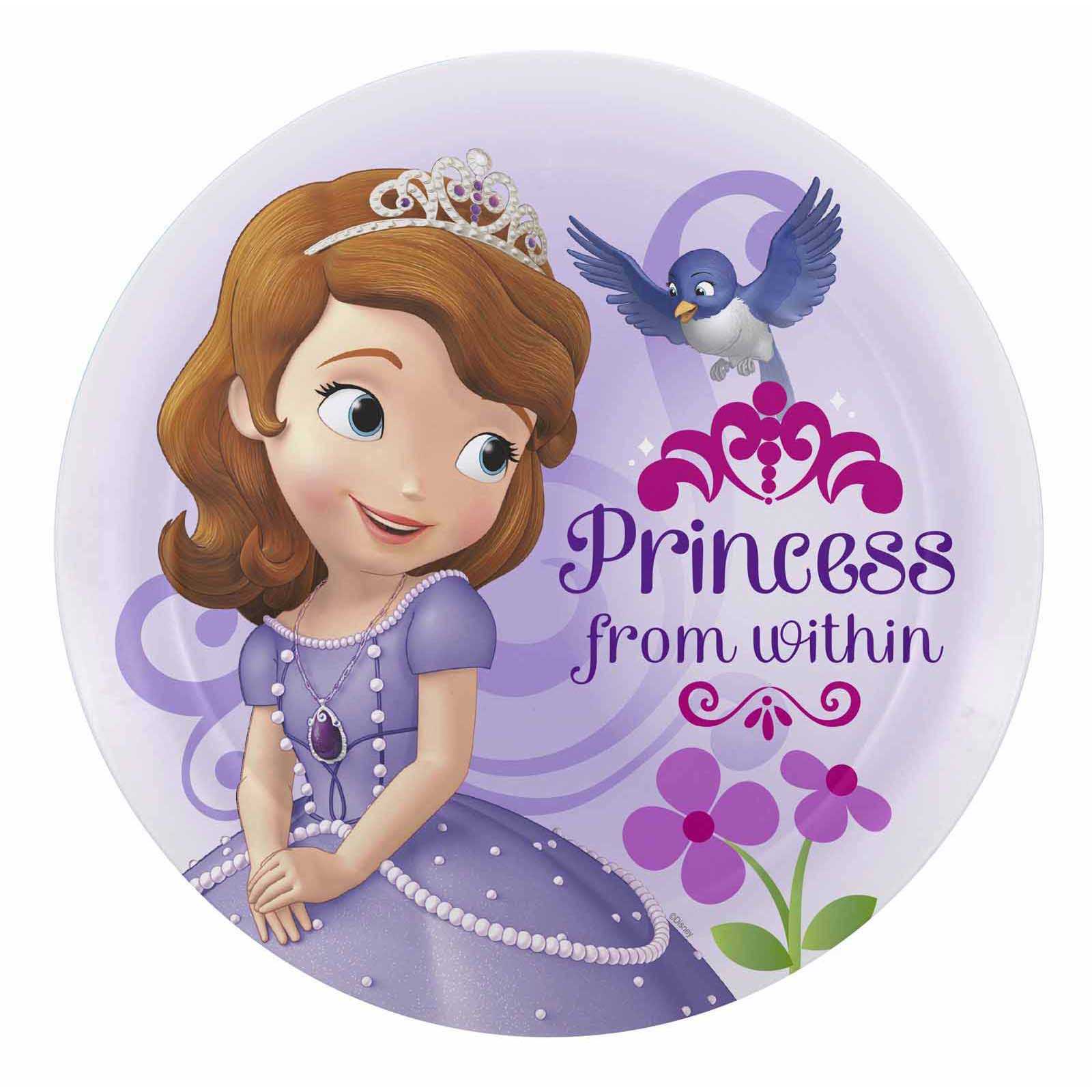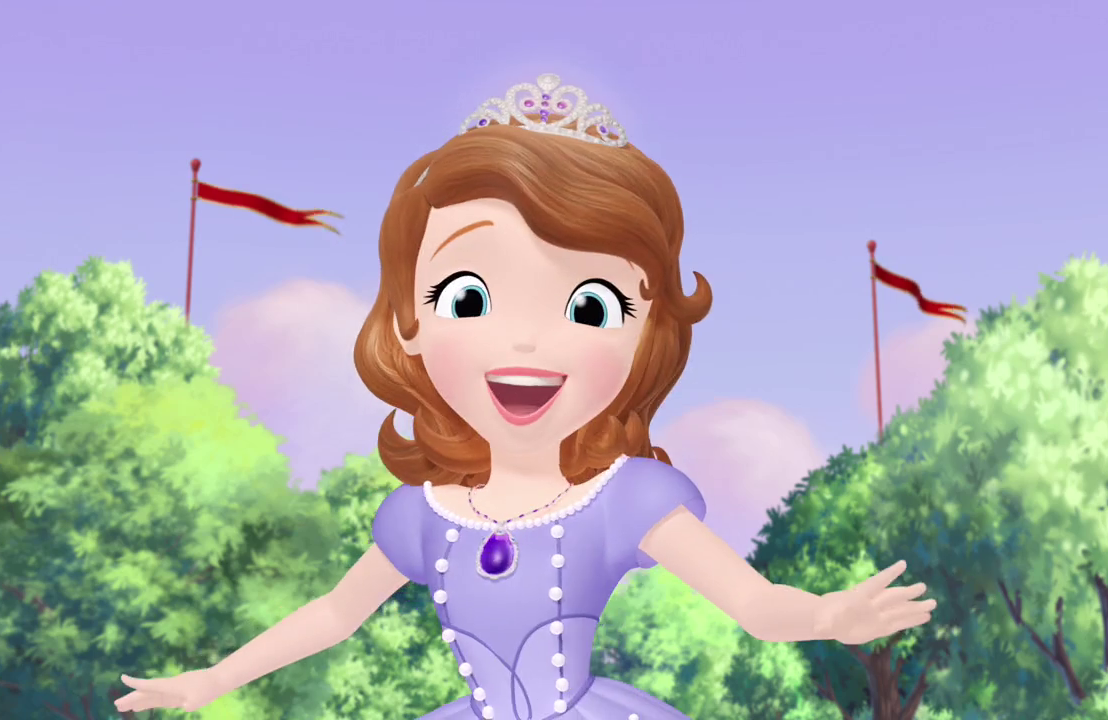
You have to believe me when I say that it’s not my intent to carry on eviscerating children’s television. I’m only in my late-twenties but I fear my online persona at times comes across too curmudgeonly. Nevertheless, the vocals from my 2-year-old’s favorite Disney Junior show recently assaulted my eardrums…and my theology.
I’m no stranger to Sofia the First. My daughter’s incessant affection for Sofia and the chronicles of her adventures has resulted in my wife and I cycling through the four breezy seasons over a half-dozen times (each). And though I don’t know how much my little princess grasps of the show besides its fantastical colors and talking animals, sometimes the show’s affinity for morals through musical numbers reaches out and slaps me with lessons I’d never want her to remember. Such was the case when, upon my fourth viewing of an episode called “Minding the Manor,” I actually listened to the lyrics of its featured song, “It’s Up to You.”
Take a breath and do your best
To make your problems disappear
It’s up to you to be the one
Who makes sure everything gets done
Just take the time to think things through
Because my dear
It’s up to you
Princess Sofia’s Aunt Tilly belts out this anthem as she readies herself to depart her manor on some such errand, leaving Sofia in charge of the estate grounds until her return. I have to question Tilly’s judgment, here, and not because Sofia’s a troublesome child but because she’s just that: a child who’s left to “mind the manor.” Notwithstanding the foibles in logic in the episode’s narrative, this song takes on an even deeper meaning when you put it in the context of the entire show. I know, I know — I’m probably the only late-twenty-something dad contextualizing (and theologizing) a Disney Junior show, but bear with me.
Despite beginning as a cute and colorful show meant to teach easy moral lessons and general decorum through thinly veiled plugs for other Disney princess properties, Sofia the First takes a hard left in its narrative structure after this episode, “Minding the Manor.” The next one is entitled, “The Secret Library,” in which it is revealed that Aunt Tilly was not only the original owner of Sofia’s magical amulet (yeah, she has a magical amulet that gives her powers and lets her talk to animals and such — the rules are never really clearly defined), but she was also the curator of “a secret library,” which itself is enchanted. This library’s shelves are filled with thousands upon thousands of volumes of unfinished tales; and as was Tilly’s responsibility, so is Sofia now tasked with giving each tale “a happy ending.”
For the rest of the show’s run, Sofia “enters” these unfinished stories and seeks to finish them through some act of kindness or deference or sacrifice. (It must be noted that it’s never really evident to me whether these “tales” she’s entering are real worlds or fictional manifested lands. I’m not sure the writers knew either, to be honest.) The stark narrative turn changes the entire dynamic of the show, such that its titular character transforms from an unassuming pre-teen princess learning the ropes of royalty and kindness and life lessons into a pre-teen super-princess who hops realms and helps defenseless citizens against trolls and witches and the like.
 With that in mind, then, “It’s Up to You” is less a song solely about the context of its episodic storyline and more about foreshadowing Sofia’s true destiny as “the story-keeper” of Enchancia (still one of the greatest names for a children’s kingdom ever). As I listened to the words and, yes, contextualized them, it struck me how prevalent its message is in society at large.
With that in mind, then, “It’s Up to You” is less a song solely about the context of its episodic storyline and more about foreshadowing Sofia’s true destiny as “the story-keeper” of Enchancia (still one of the greatest names for a children’s kingdom ever). As I listened to the words and, yes, contextualized them, it struck me how prevalent its message is in society at large.
Our culture is driven and defined by control. We’re indoctrinated to believe that the outcome of our lives is up to us, that we control, and are ultimately responsible for, our own destiny. “It’s all a part of growing up,” Tilly reminds us, “and now it’s time to be in charge.” It’s up to you, we’re told. “It’s all up to you.”
We feel this at an existential level. Our lives are inundated with ads and programs that would have us believe that it is up to us. In that way, we have all been duped by the Joseph Campbellian philosophy of life and stories in which we are each the hero of our own journey, the legend of our mythic lives. In our own minds, we are the heroes on the quest. The saviors who embark on the odyssey of redemption and recovery. Social media has made this very apparent. Through the abundance of carefully modified photos and calculated Insta-stories, we become melded into one myopic performance wherein actor, audience, and director are all one: us. Life in this scenario becomes a “never ending succession of choices,” writes Giles Fraser, “a constant work-in-progress of self-definition.” And if it is all up to us, we better be darn sure we’re making the right choice.
“We are the authors of our own identity,” continues Fraser. “Mini gods of self-creation.” We are the leads of our own life-movies, whose biopics are being told and curated and edited as life happens all around us. We are incarcerated by a philosophy that says it’s up to us to make sure this life-movie’s worth telling. As is asserted in Law & Gospel: A Theology for Sinners (and Saints), “Nothing shows our lack of freedom better than our addiction to control.”

But Scripture’s good news informs us of an altogether different view of our lives, one in which we are confronted with the startling truth that we are not the heroes. We are not the “knights in shining armor.” We are not engaged in some terraform expedition. We are neither actor nor director on this set. Rather, we are the background players whose lives have been forever transmogrified by the power and presence of the true and better Hero.
The glad tidings of the gospel announce that it is not up to us. We are not the saviors. Actually, we are the ones in distress, the ones who get saved. The burden of salvation was borne by One infinitely greater and stronger and more glorious than you and I. By One who could bear the full weight of the world’s grief, yes, including the grief of falling short and not measuring up. God’s gospel is the message that says to us, “It’s not up to you. It’s up to me. And I’ve finished it already.” Thus, if you think you’re a commensurate player in your salvation you’re categorically mistaken. The onus of salvation isn’t up to you. It’s up to God. There rests not an ounce of salvation on your shoulders. There isn’t even a “co-op” mode either. There’s only one player, one mover, and one finisher in this divine plan of redemption and restoration. And he’s done it all.

COMMENTS
Leave a Reply












